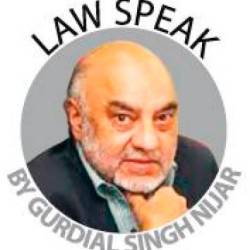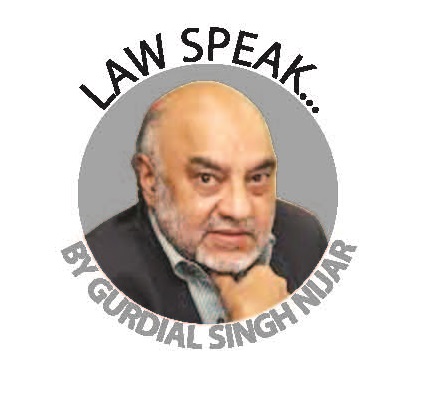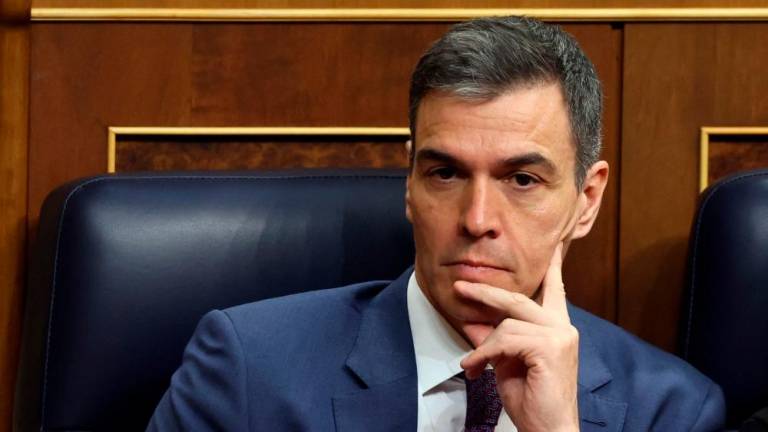FINALLY, the demand for genuinely “free and fair elections” is finding a true champion. No less than the newly-minted head of the Election Commission (EC) itself, Azhar Harun. Known for his integrity and no-nonsense approach, he has sounded a warning for the Cameron Highlands parliamentary seat by-election due on Jan 26: obey the election laws and ethics or stern action will be taken. And he will be working “hand in hand” with the police and the Malaysian Anti-Corruption Commission (MACC). With the latter even agreeing to place officers and members at hotspots to eradicate vote-buying.
Azhar spelt out the full panoply of election laws to obey: such as hosting banquets (penjamuan), giving gifts, usage of government assets and facilities, organising government programmes and campaign activities that are race-based or touching on religious sensitivities.
All of which were almost flagrantly flouted in the past. With impunity as reports to the EC fell on deaf ears. Raising concerns that the EC was complicit with the then ruling government.
Azhar’s first test was when he banned the winning GE14 BN candidate from contesting in elections for up to five years – after a finding by the Election Court nullifying his election for corrupt practices. The High Court last week upheld the EC’s decision. Chalk one thumbs-up for Azhar. As well as for the new PH government for following through with its promise of cleaning up the election process.
Already Azhar is on the ball. Tweeting, even as I write this, to demand a clarification of the authenticity of a viral picture depicting a potential candidate dishing out cash to voters.
The EC has a lot on its plate. In the many past elections there was so much done that undermined the integrity of the election process. This is what resulted in the formation of Bersih for free and fair elections – and its wide national and global appeal. The abuse reached its peak in the 13th general election. Leading to a public outcry of electoral fraud and irregularities.
Bersih set up the Peoples Tribunal on GE 13. Its findings (‘Report of the Peoples’ Tribunal on Malaysia’s 13th General Elections’) exposed a shocking litany of misdeeds and breaches of the election laws. And a failure to rectify the misdeeds – as the EC, the police and even courts repudiated their role to oversee the process (leaving it to Parliament to resolve any complaints including those relating to defective electoral roll, gerrymandering, malapportionment of constituencies and election offences).
The new EC has a gargantuan task to deal with these many blatant violations of our election laws.
First is to deal with the manipulative redrawing of constituencies and moving voters – gerrymandering and malapportionment. And rectifying the register of voters. The Peoples Tribunal identified many of these: non-registration of voters, registration in “alien” areas, inaccurate names and addresses, dead people registered, some registered although they did not apply. The accuracy of the register of voters is a vital tool in achieving fair elections.
Also where and under whose reliable custody can postal and advance votes be stored? There must also be a process to ensure the accuracy of forms recording numbers of ballot papers and votes.
Paramount is the need to deal with outright bribery of voters. As well as undue influence with promises of benefits or threats.
Significantly, the then ruling party unashamedly used government resources for their own campaigns. A clear offence under the Election Offences Act. Indira Gandhi, a former prime minister in India was disqualified precisely for this reason – using government officials and machinery for personal election-related work. The Allahabad High Court on June 12, 1975 set aside her election and disqualified her to contest parliamentary election for next six years. She promptly declared an emergency, suspending all fundamental rights, putting opposition leaders in jail and imposing censorship on the media. In the election held after the emergency was lifted, her Congress Party was roundly defeated for the first time ever in India.
The key authority to blame must surely be the Election Commission. As the Tribunal Report noted:
“It (EC) does not seem to have taken charge of the elections in a firm way as it should. It exists to prevent abuses. Yet it seemed unable to do so, even unwilling to do so. Its professionalism is thrown in doubt. Closer scrutiny shows that it is too close to power: not sufficiently independent in the way it operates, or the way it is appointed. The sort of people who make it up are too closely associated with those in power.”
Almost all of the past EC officials have resigned well before their retirement age, prompting Bersih to lament that they are doing this to avoid the verdict of a tribunal on “their roles and responsibilities in wrongdoing and abuse in power in the 14th general election”. A commissioner’s position is secured and he can only be removed by a tribunal set up under Article 114 of the Federal Constitution.
The PH government has avowed to redesign the EC as an independent body. As seen with the appointment of the new chairman, to be followed up with the appointment of new commissioners.
It is in this context that the new EC will be evaluated. So that it does not once again fail the people of Malaysia.
Gurdial headed the legal team at Bersih’s Peoples Tribunal on GE 13. Comments: letters@thesundaily.com










